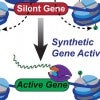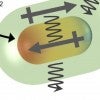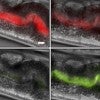
Restaurant recommendation system wins Rice Datathon
A restaurant recommendation system to support small Houston businesses during the pandemic wins this year’s Rice Datathon.

Restaurant recommendation system wins Rice Datathon
A restaurant recommendation system to support small Houston businesses during the pandemic wins this year’s Rice Datathon.

New CRISPR tech targets human genome’s complex code
Rice bioengineers harness the CRISPR/Cas9 system to program histones, the support proteins that wrap up and control human DNA, to manipulate gene activation and phosphorylation. The new technology enables innovative ways to find and manipulate genes and pathways responsible for diseases.

Failed storage tanks pose atmospheric risks during disasters
Rice engineers model hypothetical threats from toxins released when aboveground storage tanks fail during a storm.

Tune in to Datathon next weekend
The public is invited to look in upon Rice University’s third annual Datathon, sponsored by the Rice Data Science Club and the Data to Knowledge Lab.

Research could dramatically lower cost of electron sources
Rice University engineers have discovered technology that could slash the cost of semiconductor electron sources, key components in devices ranging from night-vision goggles and low-light cameras to electron microscopes and particle accelerators.

Brain-to-brain communication demo receives DARPA funding
Wireless linkage of brains may soon go to human testing with $8 million for preclinical demonstrations.

‘Soft’ nanoparticles give plasmons new potential
Bigger is not always better, but here’s something that starts small and gets better as it gets bigger.

Light flips genetic switch in bacteria inside transparent worms
Researchers from Rice University and Baylor College of Medicine have shown that colored light can both activate and deactivate genes of gut bacteria in the intestines of worms. The research shows how optogenetic technology can be used to investigate the health impacts of gut bacteria.